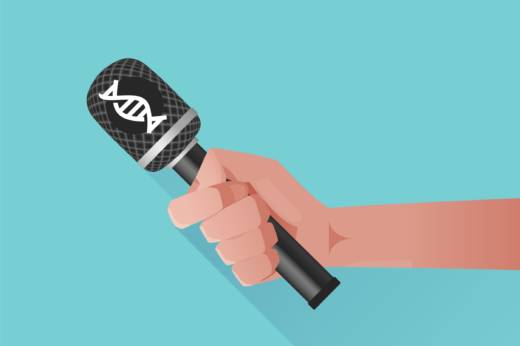In her new book, "A Crack in Creation: Gene Editing and the Unthinkable Power to Control Evolution," Doudna (who co-authored the book with former student Samuel Sternberg) writes humans are "on the cusp of a new age in genetic engineering and biological mastery."
"It won’t be long before CRISPR allows us to bend nature to our will.”
CRISPR applications could bring us higher tomato yields or cattle born without horns (allowing livestock to avoid the potentially painful procedure of having them removed). Ongoing medical research using CRISPR includes gene editing to target immune response in cancer patients and to correct sickle-cell anemia, a painful blood disorder.
But the $10 million question at CRISPRcon loomed large:
"How do you decide which genes are appropriate for germline editing?" asked a woman in the audience, during a question and answer session with Doudna. Germline editing means that the changes made affect sperm or egg cells, and therefore can be inherited.
"That's a question that could be debated and discussed for the entire time of the conference," said Doudna. But her short answer, referencing a recent report with recommendations from the National Academies, was, "We look for situations where there would be no other reasonable way to deal with a genetic disease other than gene editing. And when you think about it that way, those situations are rather rare."
Preimplantation genetic diagnosis (for parents using in vitro fertilization) and genetic counseling can offer routes to avoid serious genetic mutations without gene editing. This latter technique would, however, require parents to decide if they are willing to terminate a pregnancy.
Doudna believes that in most cases genetic counseling and preimplantation genetic diagnosis are sufficient to deal with disorders caused by a single gene. But some couples might not have any other option to conceive a healthy embryo outside of editing their genes. For example, if both parents both have the same disease-causing gene, "That's an issue where gene editing could be relevant in the future."
For any parents who want to select for green-eyed, athletic geniuses, their best bet is still a random roll of the dice, not gene-editing, if the National Academies has anything to do with it. "Do not proceed at this time with human genome editing for purposes other than treatment or prevention of disease and disability," the study recommends.
But the question of whether embryos should be edited to avoid disease and disability has reached new urgency, says Doudna, with the publication several weeks ago of the first paper that lays out a good protocol (a written procedure) for targeting a gene linked to disease. It has the potential of being useful in clinical applications.
"What they showed, importantly," said Doudna, "was that there was very few off-target effects [unintended changes] and also they could avoid something called 'mosaicism'. " That arises when the desired edit occurs in only some of the cells in the developing embryo. Both edited and non-editing cells replicate, resulting in an organism with a genetic patchwork, which may or may not be harmful.
"We now understand that, when applied in certain ways this technology can be very robust, in viable human embryos. We can no longer say, 'Well, there's a lot of technology development to be done before we have to worry about that application.' It's now a question of, 'We know this can work, are we willing to go there or not?' "
Since CRISPRcon, the paper in question has come in for some recent criticism from scientists not involved in the research. They call into question the main conclusions of the paper and say more definitive studies are needed. That said, most scientists believe precise editing in embryos will be possible someday, and likely someday soon.
For members of the public eager to be part of the debate, events like CRISPRcon provide a rare forum with scientists like Doudna who have testified before Congress regarding the science and ethics of gene editing. But for the average person on the street, the most direct route to voicing opinions and concerns may be submitting comments on the homepage of the National Academies' Human Gene-Editing Initiative. Of course, there is also the tried and true method of calling your representatives.
